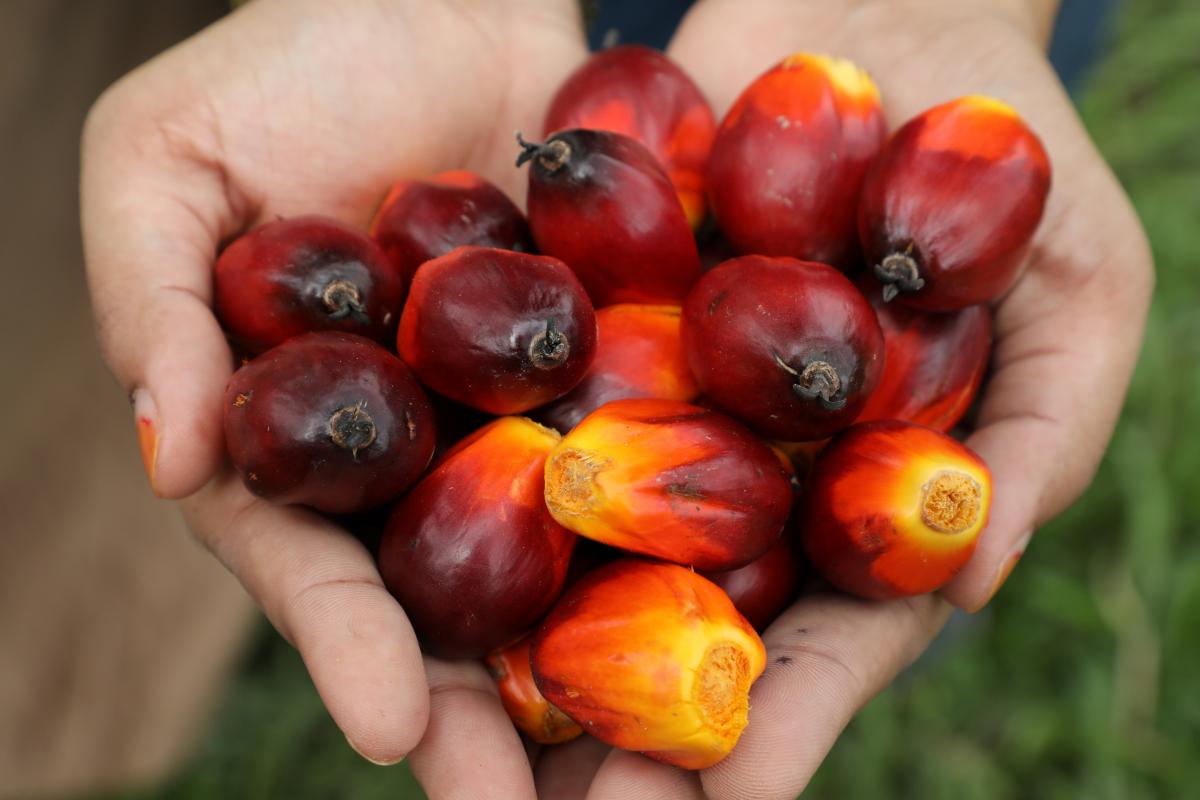As the world’s second biggest buyers of palm oil, Chinese companies are coming under growing pressure from consumers, brands and investors to source this risky commodity more sustainably, says CDP’s Morgan Gillespy
We know it’s in our pizza, our cakes, our soap and our washing powder: the ubiquitous nature of palm oil in consumer goods is now well-known, and so is its links to deforestation.
A recent CDP report on the palm oil industry, The Hidden Commodity, focused on the unique role of China to transform this value chain and protect Asia’s tropical forests. While palm oil is used all over the world, China imports 7 million tons annually, and recent trends suggest it could soon overtake India as the top importer of palm oil globally. Additionally, the industry in China is highly consolidated, giving the key players more leverage power.
A staggering 85% of the world’s palm oil, and almost 100% of China’s imports, is produced in just two countries: Indonesia and Malaysia. This has often been at the expense of clearing vital tropical rainforest. An explosion of plantations is linked to the loss of 2.1m hectares of old-growth forest in Borneo alone between 2005 to 2015.
A group of 58 investors is calling on buyers of palm oil to become RSPO members, and adopt no deforestation, no peat policies
As public attention on the devastating impacts of unsustainable palm oil production has grown over recent years, the winds of change are now blowing. Companies producing or sourcing palm oil are facing increasing demands for sustainability, from customers, investors, consumers and policymakers.
CDP works with more than 150 purchasing organisations with $4tn in buying power, which call on their thousands of global suppliers to disclose and manage their environmental impacts. In 2017 we extended this work to cover forests. This year we recorded a growth, from 13 to 19 forests members, including Chinese poultry giant Fujian Sunner Group.
Many international buyers (such as Carrefour and Firmenich SA) that source from China have made commitments to only buy palm oil products certified by the Roundtable on Sustainable Palm Oil (RSPO). If Chinese suppliers do not comply with these policies, they may see contracts terminated and business lost.

Investors are demanding action too. A group of 58 investors with $7.9 trillion in assets has signed a paper on Investor Expectations on Sustainable Palm Oil, which calls on companies to become RSPO members, adopt No-Deforestation, No Peat, No Exploitation (NDPE) policies, set time-bound plans, and regularly report on progress.
All this is related to a growing awareness and demand for better environmental standards among the public, including in China. A 2019 survey showed that 88%of Chinese consumers now consider environmental impacts and company reputation in purchasing decisions.
The upcoming Biodiversity COP, being hosted by China but delayed due to Covid-19, will be a crucial moment to drive forward global political action on forest protection. This will be an opportunity for China to show strong market signals and leadership on sustainable agricultural production that protects the natural world.
Brand damage is one of the risks most cited by companies, but too many are overlooking the physical risks of unsustainable palm oil
If unsustainable palm oil production continues to drive destruction of tropical forests, the ultimate result will be spiralling dangerous climate impacts and biodiversity loss. This poses many risks to business.
The shifts in market demand, consumer preferences and policy direction described above all contribute to significant reputational and regulatory risks to business if they do not take concerted action. Brand damage is one of the risks most often reported by companies in CDP’s forests questionnaire.
But too many companies are overlooking the physical risks. Companies producing and sourcing palm oil are exposed to physical risks caused by current and future climate change. This includes lower yields caused by extreme weather, rising temperatures and changes to rainfall patterns, and increased risk of forest fires caused by drier and warmer conditions. Flooding is also a risk: a previous CDP report No Wood for the Trees found that 90% of palm oil production is concentrated in Southeast Asia along low-lying areas exposed to sea level rise and coastal flooding.
For producer companies these impacts would spell disaster for their operations, while for companies further down the value chain it would translate into higher costs. In 2019 companies reported through CDP a combined $7.6bn at risk from the physical, reputational and regulatory issues related to their use of palm oil. While high, this is likely to be extremely under-reported, as only 25% of the sample were able to estimate their financial impact, and disclosure rates remain low.

The opportunities for companies willing to take action on sustainable palm oil are ripe for the picking. In 2019, 32 companies reported a combined $2.4bn in opportunities through CDP, such as improved brand value and access to capital. Like the risks, this figure is expected to be under-reported.
For example, Unilever estimated that its initiative to transform its palm oil supply chain was worth an extra $195m in brand value. Meanwhile, the palm oil producer and trader Wilmar has achieved better access to capital, with sustainability objectives integrated into loans from ING bank and OCBC bank.
One of the reasons palm oil is so widely used is its high yields compared to other vegetable oils. This efficiency provides an economic and environmental opportunity, since less land is required for the same production.
Of the 543 companies that reported on forests in 2019, 21 were Chinese, up from nine in 2018
The opportunities to be gained, combined with the risks of inaction, make the business case for action on sustainable palm oil crystal-clear.
But that action can only happen when there is accountability, which requires transparent, standardised disclosure. Globally, environmental disclosure has become a business norm, with 8,400 companies accounting for over 50% of market cap disclosing through CDP in total last year. But this varies greatly by region and sector, and by environmental theme.
Deforestation has for too long been overlooked in business reporting, with just 543 companies reporting on forests in 2019 (which is still the world’s largest dataset on corporate forests action). Of those, 21 were Chinese companies, up from just nine in 2018. But the overall response rate for forests disclosure in China remains very low, at 18%.
As the market shifts and the climate crisis intensifies, the time is now for full value-chain transformation to protect Asia’s vital forests. China is in a powerful position to lead the way.

Morgan Gillespy is global director of forests, CDP
CDP Carrefour Firmenich RSPO Fujian Sunner Group ING OCBC
